Five Austrian economy books you have to read
5- Economics in One Lesson by Henry Hazlitt
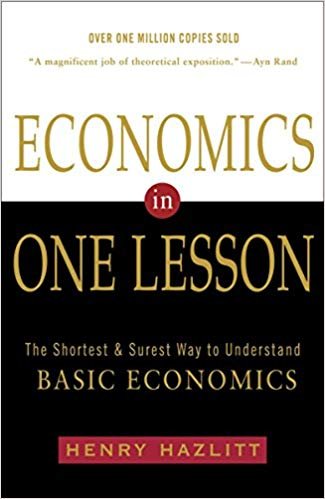
A million copy seller, Henry Hazlitt’s Economics in One Lesson is a classic economic primer. But it is also much more, having become a fundamental influence on modern “libertarian” economics of the type espoused by Ron Paul and others.
Many current economic commentators across the political spectrum have credited Hazlitt with foreseeing the collapse of the global economy which occurred more than 50 years after the initial publication of Economics in One Lesson. Hazlitt’s focus on non-governmental solutions, strong — and strongly reasoned — anti-deficit position, and general emphasis on free markets, economic liberty of individuals, and the dangers of government intervention make Economics in One Lesson, every bit as relevant and valuable today as it has been since publication
4- Money, Bank Credit, and Economic Cycles by Jesus Huerta de Soto
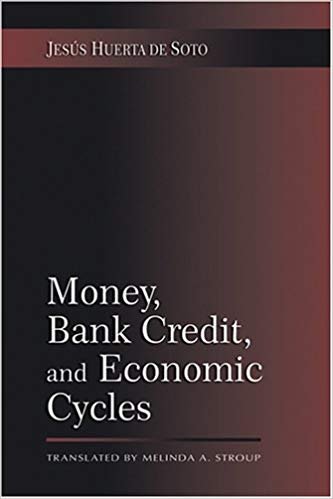
This book is the best exposition of Austrian macro-economic theory, particularly: Austrian Business Cycle Theory, Theory of Capital and Monetary Theory. The book first details the differing legal and economic nature of demand deposits and time deposits. Then it covers historical violations of the legal principles governing demand deposits, attempts to legally justify fractional-reserve banking, the credit expansion process and its effects on the economic system. In the process is detailed the workings of the economy’s intertemporal capital structure and how this structure is distorted by the credit-expansion process.
The latter bulk of the book is devoted to critiquing monetarist and keynesian theories and provides an exposition of central and free banking theory as well as a proposal for banking reform: the theory of a 100-percent reserve requirement.
3- The Economics of Time and Ignorance by Mario J. Rizzo
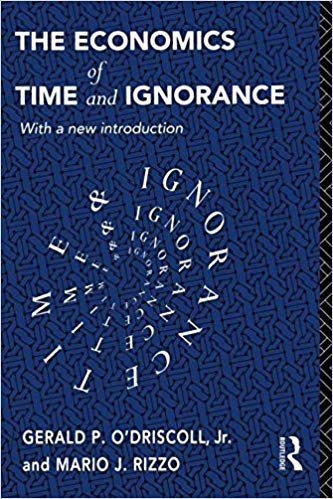
The Economics of Time and Ignorance is one of the seminal works in modern Austrian economics. Its treatment of historical time and of uncertainty helped set the agenda for the remarkable revival of work in the Austrian tradition which has led to an ever wider interest in the once heretical ideas of Austrian economics. It is here reprinted with a substantial new introductory essay, outlining the major developments in the area since its original publication a decade ago.
2- Human Action: A Treatise on Economics by Ludwig von Mises
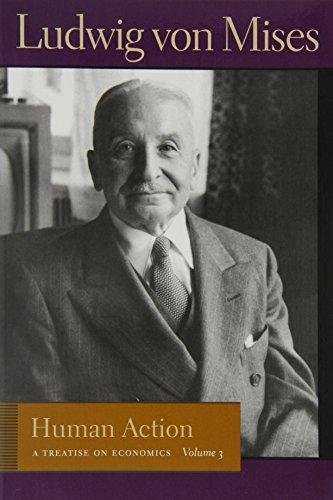
In the foreword to Human Action: A Treatise on Economics, Mises explains complex market phenomena as "the outcomes of countless conscious, purposive actions, choices, and preferences of individuals, each of whom was trying as best as he or she could under the circumstances to attain various wants and ends and to avoid undesired consequences."
It is individual choices in response to personal subjective value judgments that ultimately determine market phenomena—supply and demand, prices, the pattern of production, and even profits and losses. Although governments may presume to set "prices," it is individuals who, by their actions and choices through competitive bidding for money, products, and services, actually determine "prices". Thus, Mises presents economics—not as a study of material goods, services, and products—but as a study of human actions.
He sees the science of human action, praxeology, as a science of reason and logic, which recognizes a regularity in the sequence and interrelationships among market phenomena.
1- Man, Economy, and State by Murray Rothbard
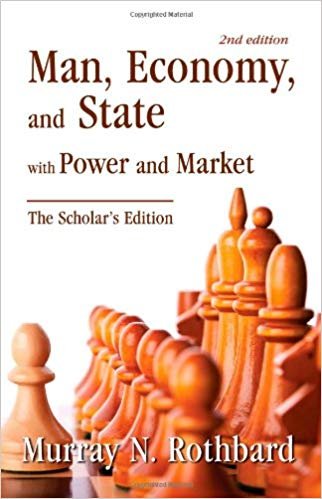
A pillar of the Austrian School Library and the last full-blown treatise on economics. If Mises's Human Action was the culmination of the School from Menger's time, Rothbard's treatise takes Austrian thought even further in the areas of utility and welfare economics, antitrust, labor, taxation, public goods, and social insurance schemes. Inconsistencies are ironed out and the system of thought, in all its logical rigor, is unbroken.
More than any book, Man, Economy, and State taught economics to the post-Mises generation. It refutes still-common errors among the mainstream and grapples with the post-war Keynesian literature point by point. The impact of this work was also enhanced by its breathtaking logic and clarity, even in the most difficult subject areas.